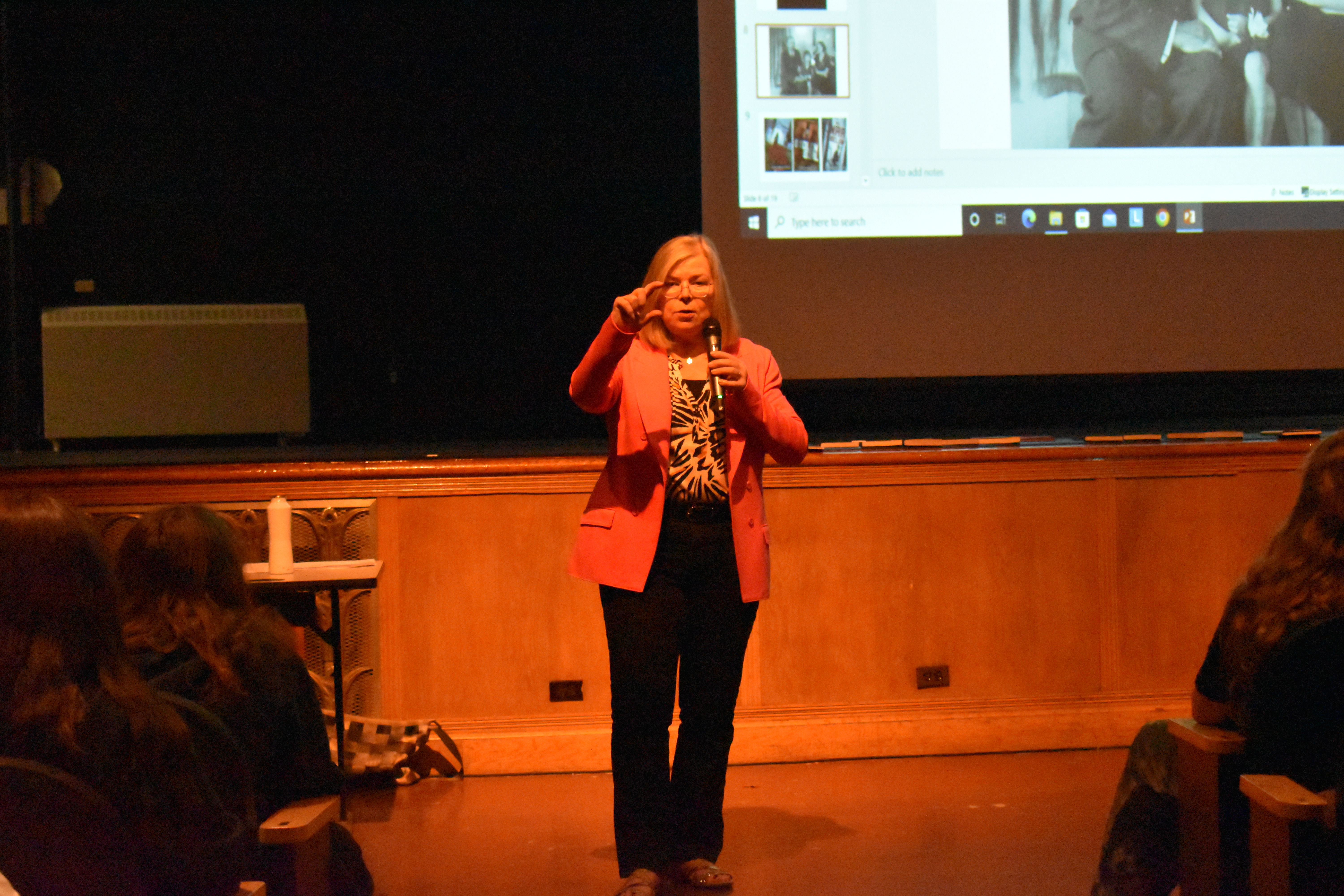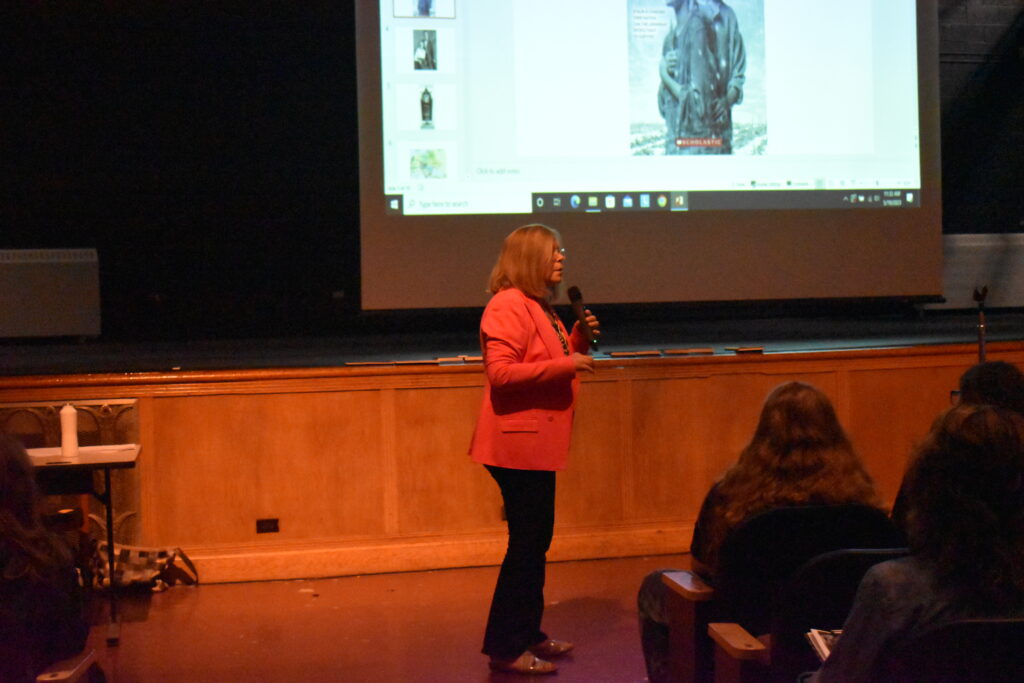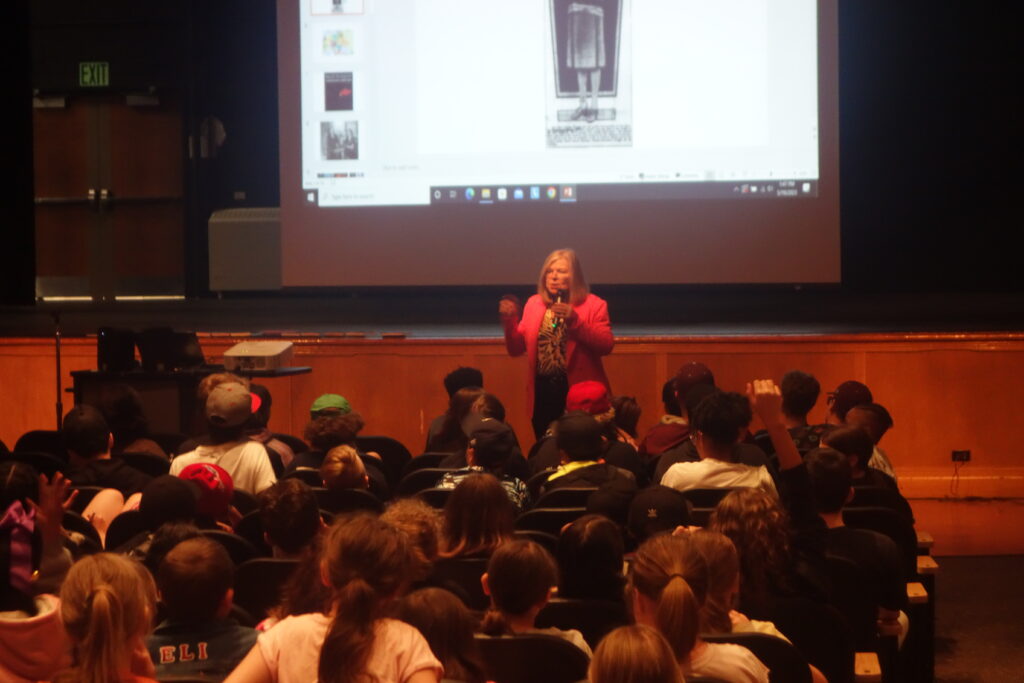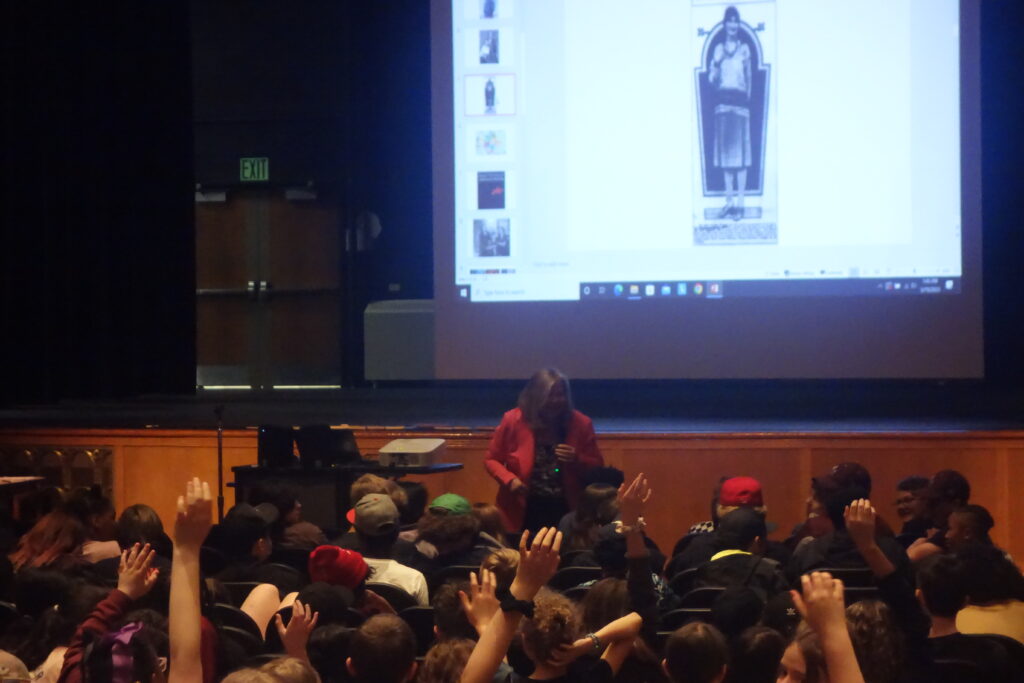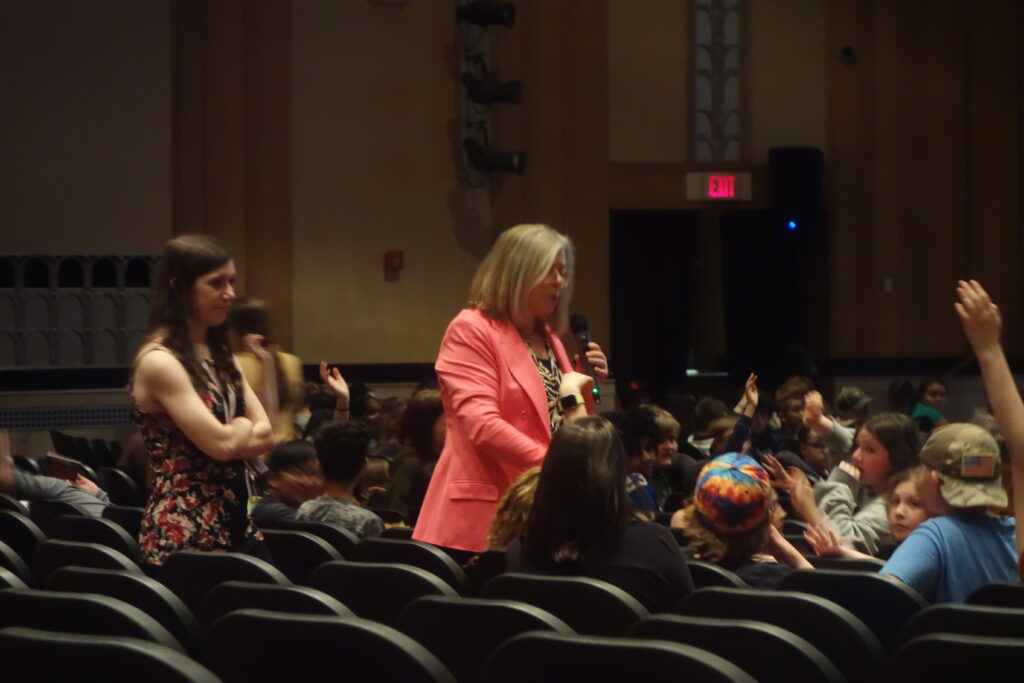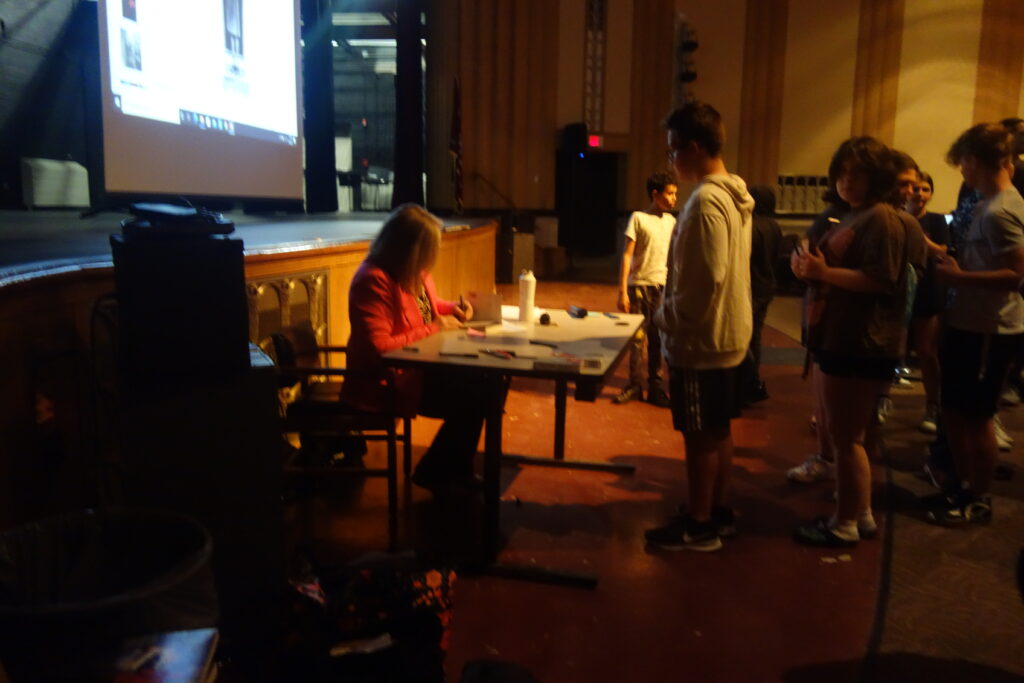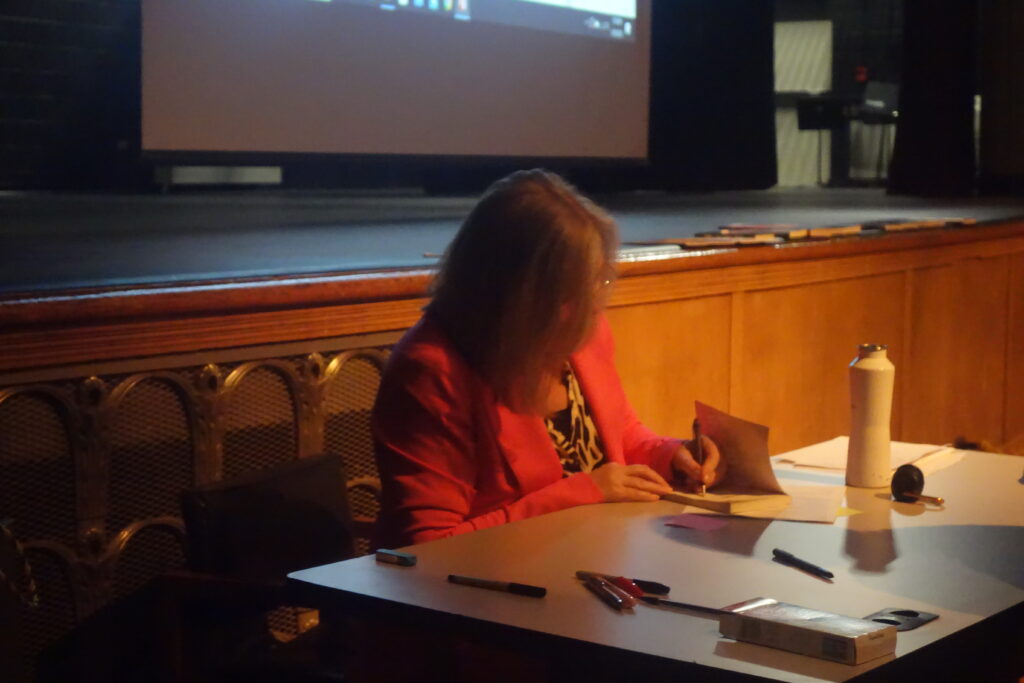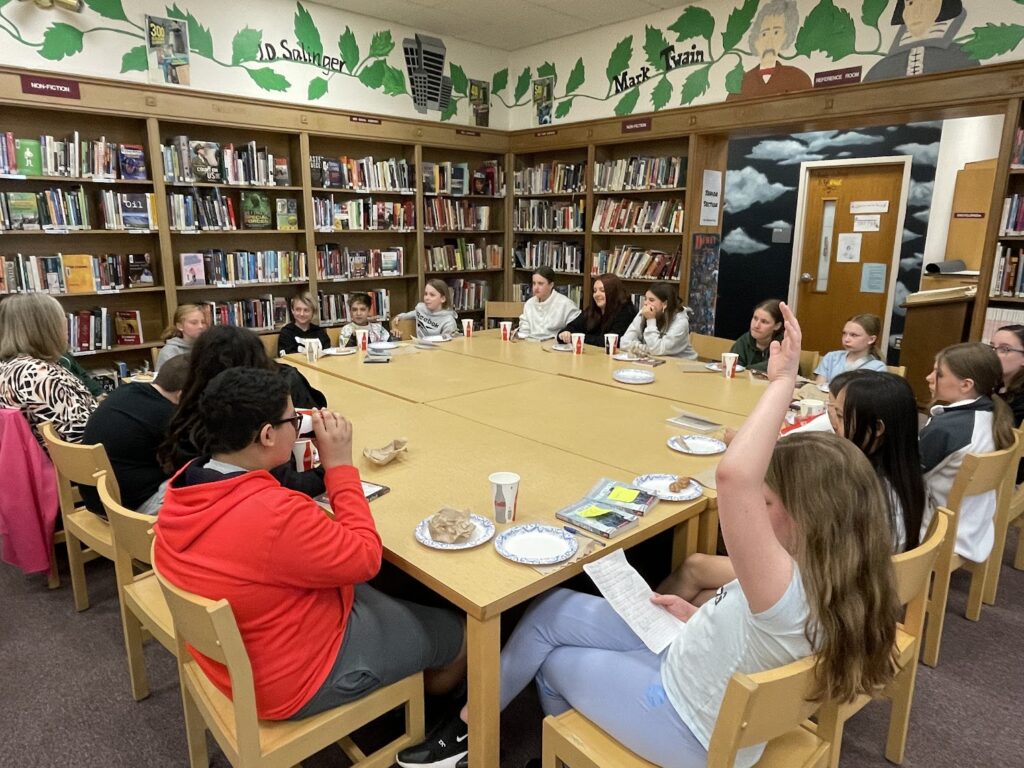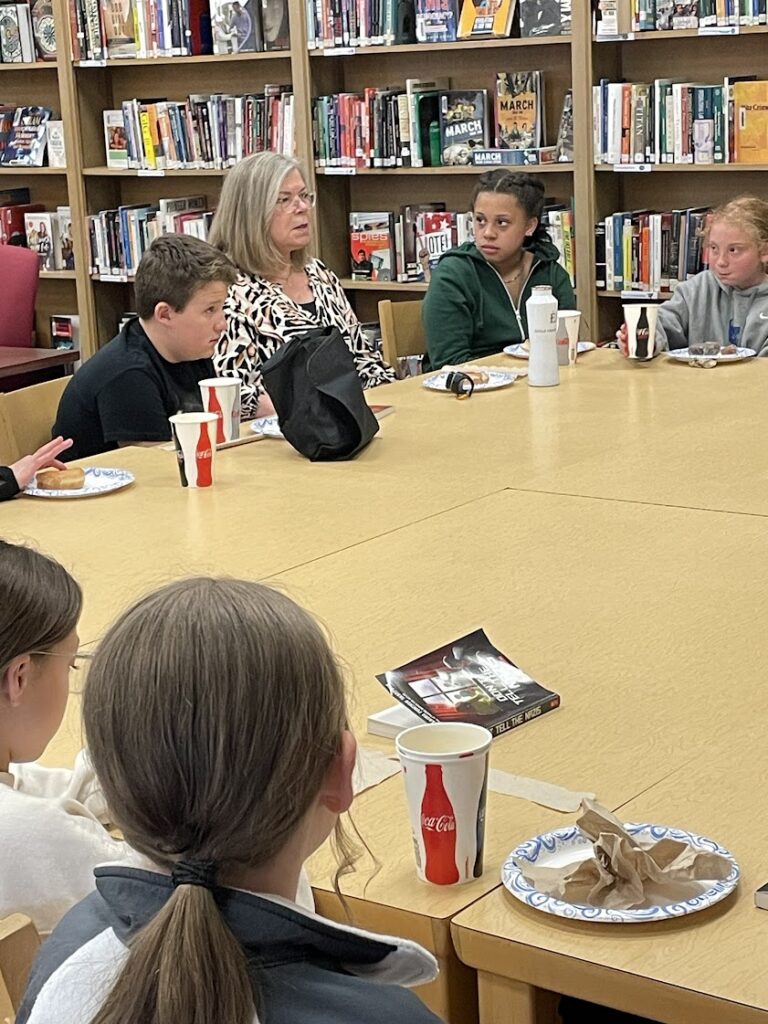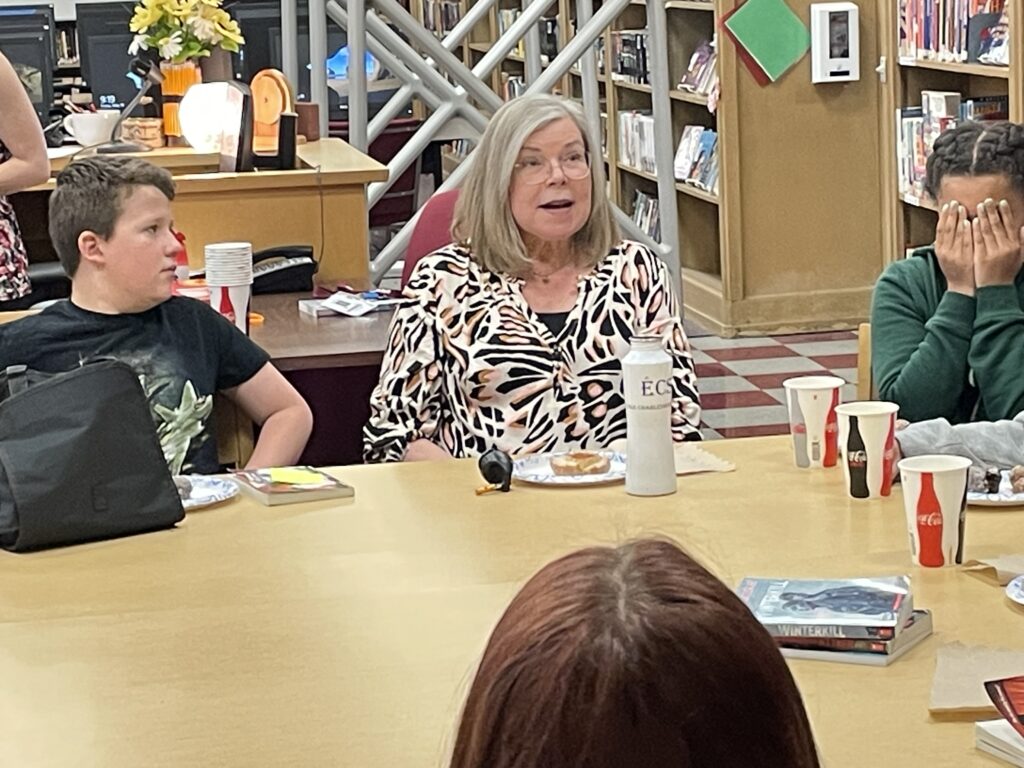
Glory to the Armed Forces of Ukraine

writes about war from a young person's view #bannedbyrussia

Ukraine is free!
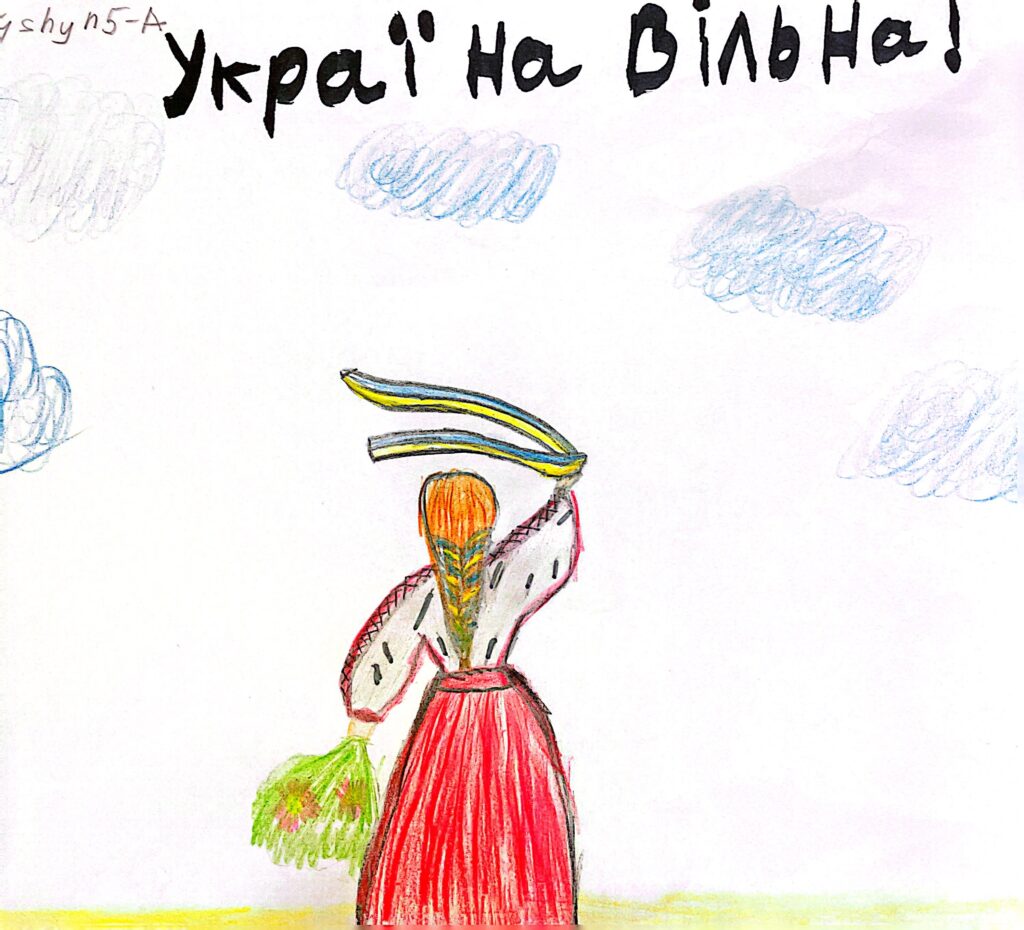
There are so many possibilities!
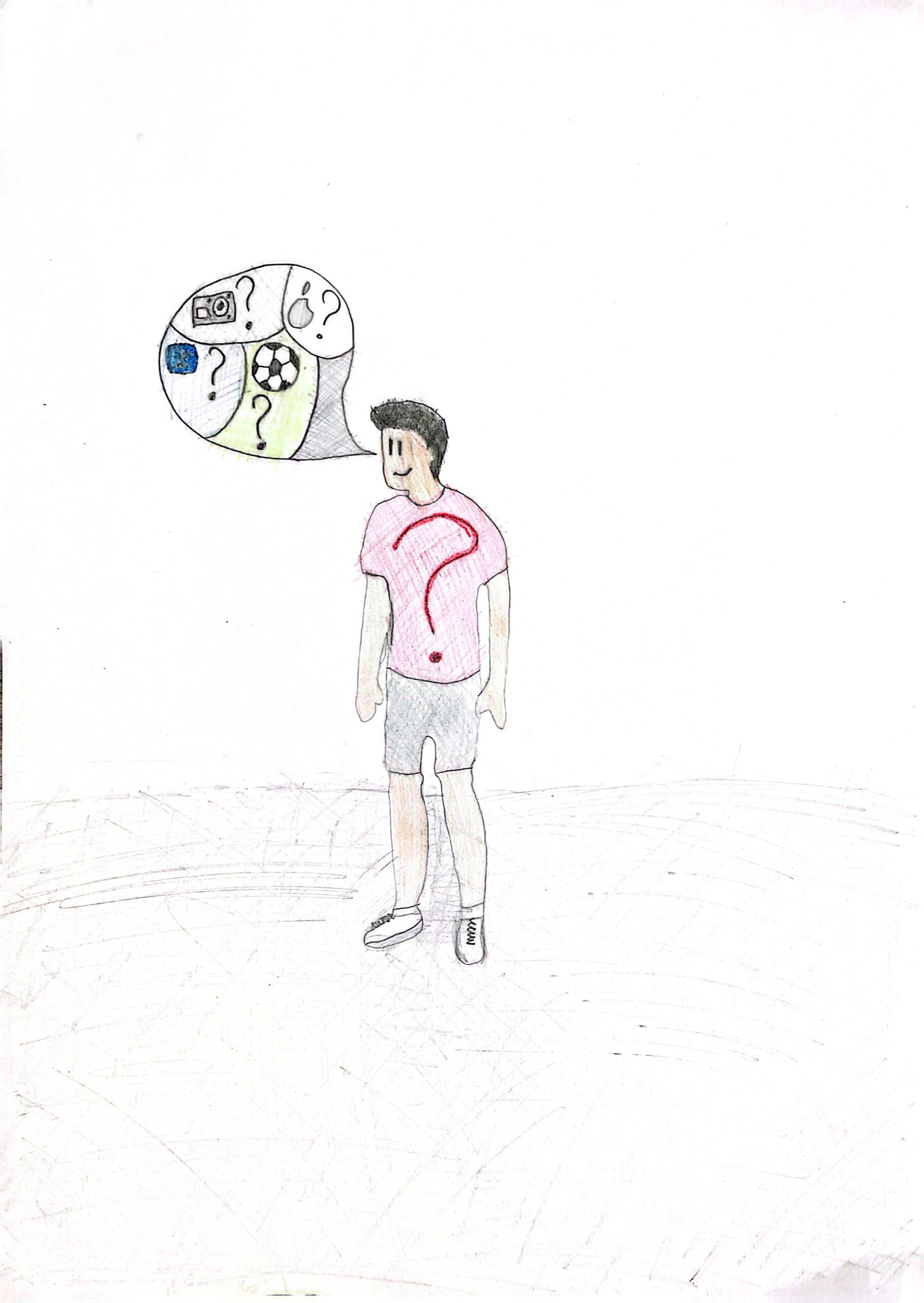
a soccer player!

Decisions decisions! Soccer player? IT professional?

Glory to Ukraine! I see my future self as an artist.

This is how I see myself in the future

I’d like to be an astronaut!
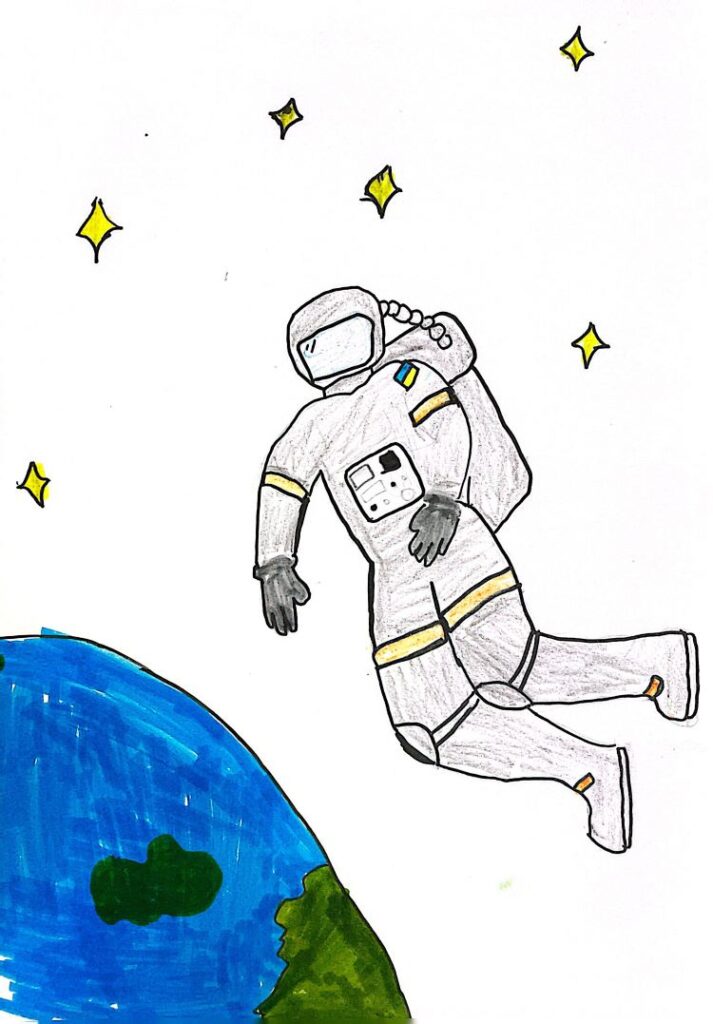
My final in-person visit of the school year was with Ms Weverink’s grade 10 English students on May 25th. The class had read Hope’s War together, but they also had Making Bombs for Hitler on their literature list so it was really neat to talk about both of these books because one was the seed for the other. In fact, Hope’s War was the seed for my two WWII trilogies. The students asked a lot of nuanced questions about character development and research and what compels me to write a story about a particular time in history. That led to a discussion about writing on topics that are suppressed and why it’s so important to advocate for people who have been silenced. I pointed out that every single one of them had been bullied at some point and so they should use that experience to put themselves in the shoes of others and advocate accordingly. Some of the students had the refugee experience in their own families so this was a resonant discussion.
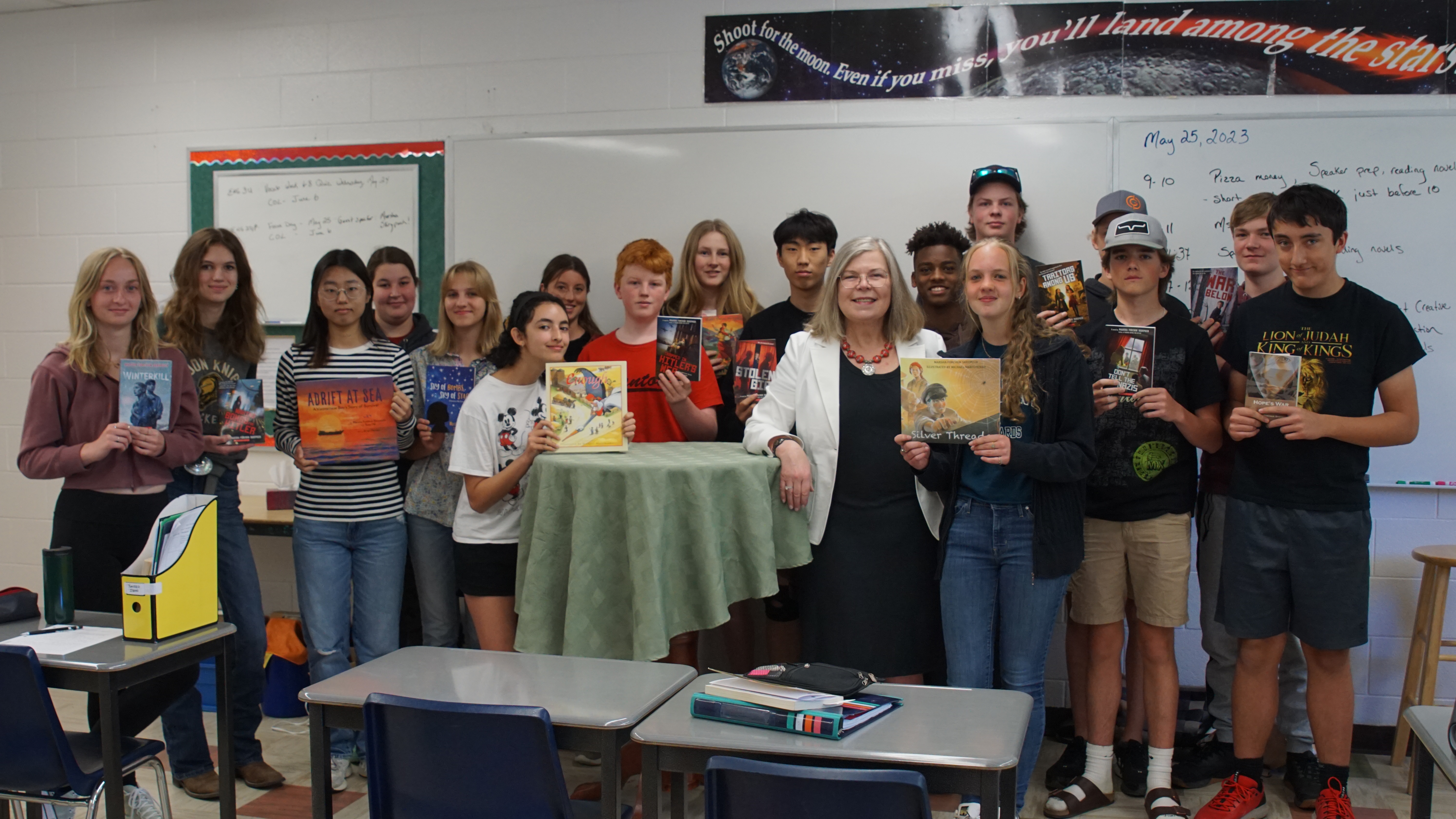
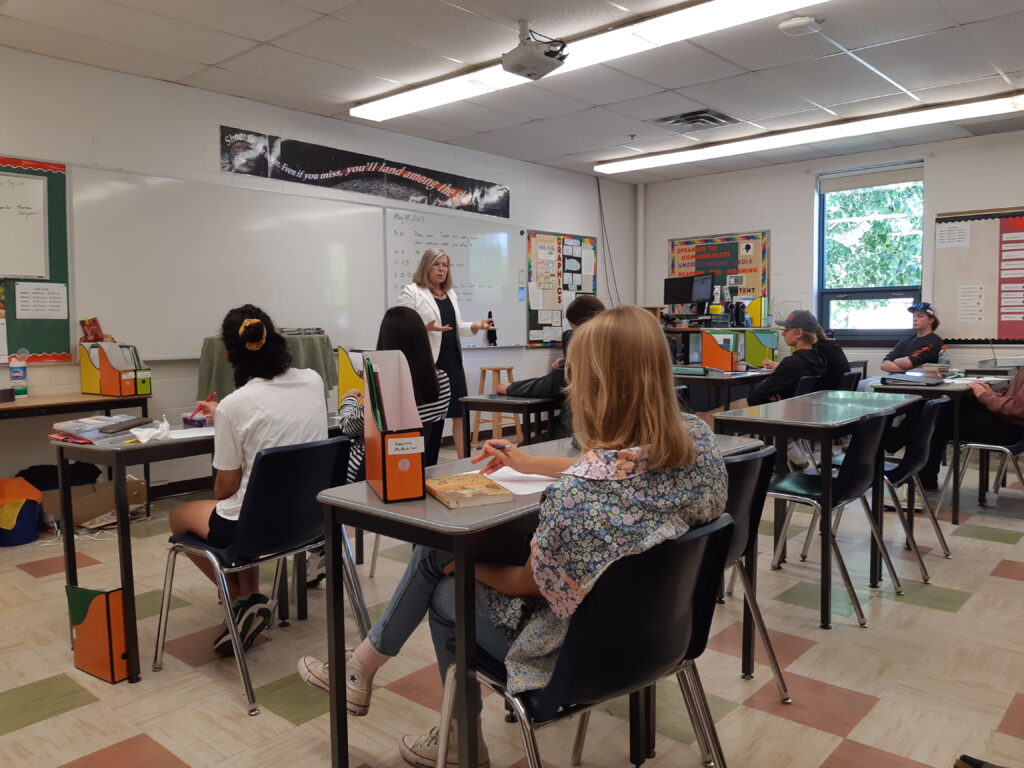
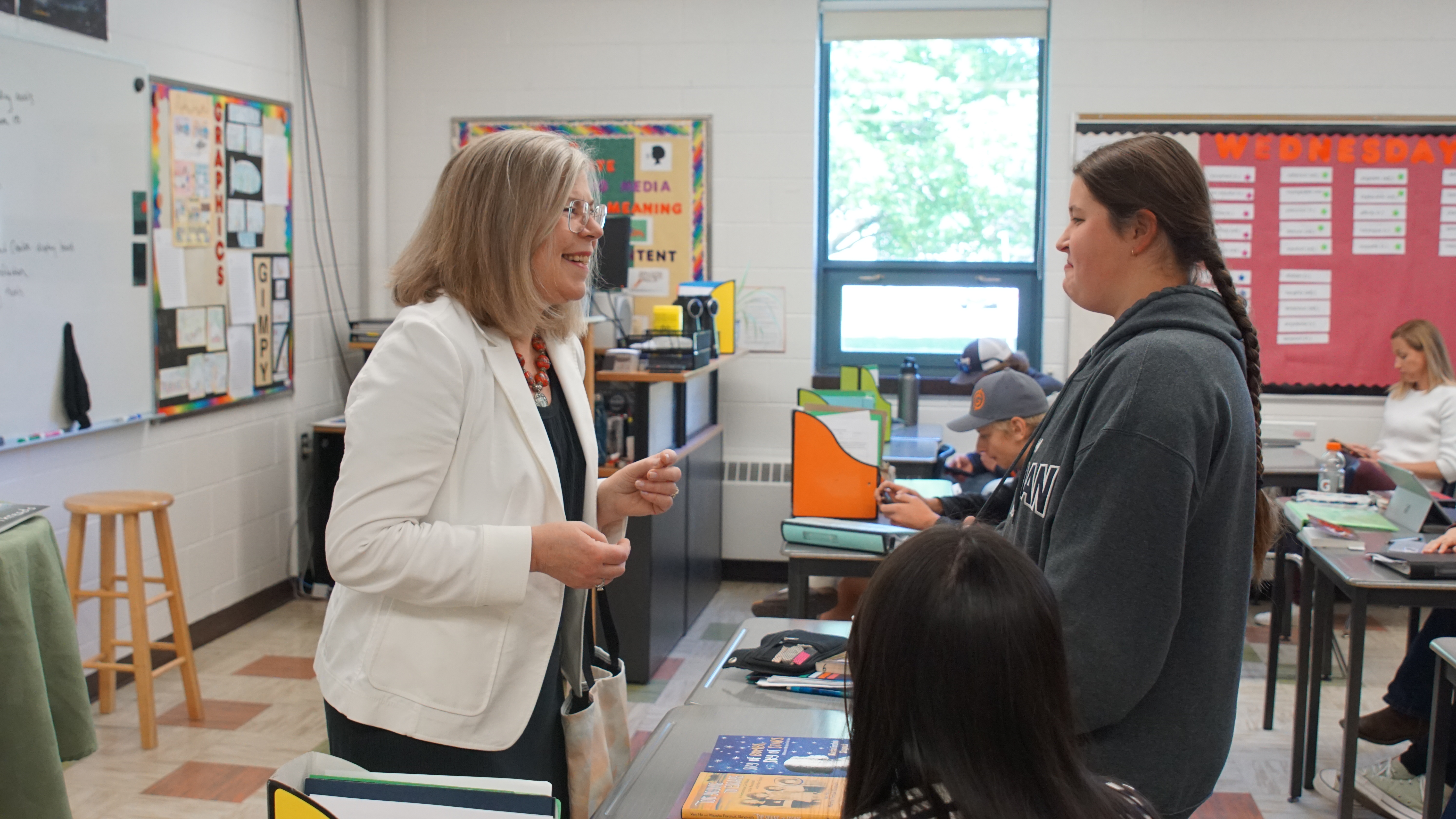
It was wonderful to do my first in-person US school visit since spring 2020 on May 19th with Maryvale Middle School in Cheektowaga NY. It was a busy day with three assemblies, two “donuts and discussion” roundtables with selected students plus a whole whack of book signings. There was a Scholastic Book Fair being held in the middle school library while I spoke in the high school auditorium, so students bought a LOT of books. Ms. Cortese was concerned that there wouldn’t be enough time for me to autograph them all but I assured her that I’d stay as long as necessary. I love face-to-face autographs. It’s such a neat opportunity to meet students. I thought it was also interesting that students with the same first name came in clusters to have their books signed. How nifty is that?
Maryvale has students from Ukraine, so it was also good to speak with them about the current war.
My hometown of Brantford and the Buffalo area are connected in an unusual way. The first 50 Ukrainian families came to Brantford not from Ukraine, but from Buffalo. They were employed by the Pratt & Letchworth foundry in Buffalo and when they opened up another foundry in Brantford, 50 of their employees from Ukraine settled here to work at the new plant. And the street many of them lived on in Brantford? Why Buffalo Street of course. Want to read more? Here’s an article I wrote about it way back in 1988!
The Cheektowaga Bee’s Elijah Robinson did a lovely interview and has given me permission to post it here.
